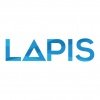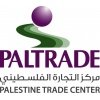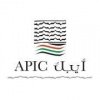Develop Database Software Program
Develop Database Software Program
- Context
1.1. About Humanity & Inclusion (Handicap International)
Handicap International is running its projects under the new name of Humanity & Inclusion (HI). Outraged by the injustice faced by people with disabilities and by vulnerable populations, we aspire to a world of solidarity and inclusion, enriched by our differences, where everyone can live in dignity. HI is an international, independent and impartial non-profit organisation that intervenes in situations of poverty and exclusion, conflict and disaster. Working alongside people with disabilities and vulnerable populations, HI takes action and takes notice, to meet their basic needs, improve their living conditions and promote respect for their dignity and fundamental rights. HI is currently implementing projects in more than 50 countries worldwide.
HI has been working in the Middle East since 1992. HI promotes the inclusion of persons with disabilities into countries’ local and national planning processes and responds to the urgent inclusion needs of persons with disabilities in four countries through several programs. In Palestine, since 1996, HI has been supporting local partners and stakeholders to respond effectively, within the framework of both inclusive local development and quality service provision, to the needs of persons with disabilities to access protection, education, health, and livelihood programs. HI has three Regional Strategic Pillars:
- Promoting the inclusion of the most vulnerable, with a focus on persons with disabilities, within the humanitarian response;
- Preventing impairment and disability by enhancing both the quality and the systemic management of existing services as well as by informing populations about risks related to Explosive Remnants of War; and
- Promoting cohesion, the resilience and participation of all through dialogue, empowerment, and disability mainstreaming in service delivery and social change.
Since 1996, HI has implemented various actions with local partners in the West Bank and the Gaza Strip. In a territory beset by chronic crises, political instability, and a declining economic and social situation since the second intifada in 2000, HI aims to respond to the needs of persons with disabilities and to make structural improvements to their lives.
HI currently is running four strategic projects: inclusive education, construction and emergency preparedness, support persons with disabilities livelihood skills, and rehabilitation.
1.2 Service provision’s background
In March 2018, the Great March of Return’s demonstration started along the fence between the Gaza Strip and Israel. Meant to last six weeks, the demonstrations are now lasting for one year and a half. The demonstrations have been responded violently by the Israeli forces leading to serious and massive casualties. According to World Health Organization and the Ministry of Health in Palestine, since the start of
the ‘March of Return’ demonstrations on 30th of March 2018 till the 30th of October 2019, the number of persons with injuries reached 35,311 and 321 people have been killed, including 64 children. Out of those hospitalized 41% were casualties of live ammunition gunshots injuries. As such Humanity & Inclusion through its project, entitled “Response to urgent needs in rehabilitation of the most vulnerable people with disabilities and people with disabilities in emergency and post-emergency situations in the Gaza Strip” addresses the emergency and post-emergency rehabilitation needs of persons with injuries and persons with disabilities in the Gaza Strip. The project contributes to the humanitarian efforts to respond the emergency while addressing the remaining gaps. It enhances the home-based and multidisciplinary rehabilitation services already provided to persons wounded in 2018, including new cohorts of persons with injuries related to the mass demonstrations as well as for persons with injuries in needs for long-term rehabilitation care and persons with disabilities. Partners’ social workers assess the needs of persons with injuries and persons with disabilities where rehabilitation professionals intervene with identified persons in need of quality rehabilitation support and post-operative services; including distribution assistive devices to support beneficiaries’ independency in daily life activities. Doing so, the project also addresses the needs of support to beneficiaries’ caregivers. In parallel, the project contributes to humanitarian coordination efforts by providing keys information and analysis as well as HI’s expertise in the field of rehabilitation and will support further mechanisms for rehabilitation actors’ coordination. The project is supported by the generous funding of Center de crisis- France (CDCS-F) and the Humanitarian Pooled Fund. This project is implementing through partnerships with two national rehabilitation organizations: Palestine Avenir Childhood Foundation (PACF); and El-Amal Rehabilitation Society (ERS).
- DESCRIPTION OF THE REQUIRED SERVICE PROVISION
2.1 Identified needs
HI intends to contract a service provider (company or individuals) for developing a Software in order to well document HI project information and data analysis. Currently, HI mobilized a field and database assistant (FDA) to manage project data. The project is using an excel format to support HI and partners’ teams during the entering, processing, analysing, organising and saving of information collected in the field by partners social workers. However, partners’ coordinators in charge of reviewing the data in order to assure accuracy before sharing it with HI FDA. After few months, a lot of beneficiaries admitted into project services and the data processing became exhausting and slow due to the massive volume of information collected. This challenged compilation of all partners data, and every so often formulas corrupted, incomplete data collection, and files heavy. Top of that, the essential need for files protection and data confidentiality. In addition, HI’s policy in knowledge management recommends the use of appropriate software. Currently, CTO Survey is the mandatory software to be used.
2.2. Objective of the Service Provision
The overall objective of the service provision is to support a sustainable and efficient data management system adapted to the abovementioned project’s needs in particular and across all HI projects in general, in respect with HI’s guidelines and policies for knowledge management.
2.3 Expected outputs of the Service Provision
The proposed database system for HI project(s) shall consider but not limited to:
- Use of software required by HI’s policies and guidelines.
- Be adaptable for all projects’ needs and specificities;
- the design and development of beneficiaries’ database for HI projects that will be containing all the details of beneficiaries’ forms.
- Import/Export projects tools to the developed software in order to extract the needed data/reports for each tool.
- Ensure a data privacy and confidentiality policies – as defined by HI.
- Ensure a proper the archiving of all data.
- Contribute to the definition and implementation of a fluid and consistent reporting system, automatizing processes, reviewing and creating report templates and defining the data and information flow.
- Ensure coherence and harmony between tools, database and project (s) requirements
- Produce information and analysis on project (s) statistics: indicators, outputs and targeted population.
- To be user friendly and responsively designed
- Ability to work in both online and offline modes
2.4 Methodology
Any interested service provider is requested to develop and share with HI the proposed methodology included in the technical offer of the required service, in which it should not exclude any of the points listed below. The proposed system shall allow efficient data management and support data analysis (needed to produce reports and analyze the inputs). This will be through:
- Preparatory meetings with project and partners’ team to ensure a good understanding between and the service provider team on objectives, possibilities, limits and expectations;
- Date management review: documents, access to current database, meetings with HI team, meeting with partners;
- Acknowledge of HI’s tools (such as CTO Survey) and data management’s guidelines;
- Discussion of current challenges in data management and project data needs;
- Development of a work plan. Installation of HI’s required software; Setting up software and adjustments required;
- Training to HI team and partners;
- Trial phase with HI team and partners;
- Final approval of software and its uses;
- Provide maintenance/following up after the trial period for one year.
- To ensure the source code of the developed software is owned by HI/Partners (leading agencies of the RNs).
HI will ensure to provide the service provider with the relevant information and document such as HI’s policies and guidelines (data management and data protection). In addition, a technical focal point at HI’s head office will provide guidance.
2.5 Deliverables
By end of the evaluation, the consultant should provide:
- One software in English and Arabic languages; this will include trail period to test the Software and do any necessarily changes/upgrading/modifications.
- Final report of the service provision including:
- Reminder of the Terms of Reference;
- Description of the service provision;
- The methodology used;
- The realized outputs;
- The recommendations.
2.6 Duration and location
- ETHICS AND VALUES
It is essential that the service provision is supported by careful ethical practice, including informed consent, anonymity and confidentiality, no-harm and protection of data and data storage. Informed consent needs to include awareness of the evaluation data collection process and that the evaluation report may be published and publicly disseminated. Extra precaution must be taken in involving project beneficiaries considering the sensitivity of the thematic issues tackled by this project. To protect the anonymity of communities, partners and stakeholders’ names or identifying features of evaluation participants (such as community position or role) will not be made public.
The evaluator should engage in respecting the following ethical principles:
- Child protection principles;
- Integrity (respect of gender sensitivity issues, especially when performing interviews/focus groups, religion and beliefs);
- Anonymity and confidentiality;
- Independence and objectivity;
- Veracity of information;
- Coordination spirit;
- Intellectual property of information generated during and by the evaluation (including report and annexes) will be transferred to the evaluation commissioner;
- Quality of reporting;
- Respect for timelines, in case of late in submission the report, HI reserves the right to terminate the contract.
- REQUIREMENTS AND APPLICATION’S PROCEDURES
4.1 Expertise required
The service provider must meet the following requirements:
- Background in programming or computer science/engineering;
- Have a strong experience in developing software programs for humanitarian interventions;
- Ability to create databases for organizations;
- Analytical thinking and ability to analyze user needs;
- Share knowledge and expertise with fellow team members, and ability to coach the users;
- Solid understanding of project’s needs;
- Document application process for future maintenance and upgrades;
- Ensure software functions normally through software maintenance and testing;
- Keen attention to detail;
- Monitor software performance tests;
- Revise programs for corrections, enhancements, or environment changes;
- Proven ability to meet deadlines;
- Professional in English Language.
4.2 How to apply?
For those who are interested in carrying out this service provide, please send the following elements (all documents should be in English):
- A detailed technical proposal including the proposed methodology,
- A financial offer must be submitted in Shekel Currency (ILS) that covers all anticipated costs (Advertisement fees, taxes, travel, accommodation, communication, transportation, insurance, translation, etc.), including the service itself and the maintenance guarantee for one-year;
- A CV detailing relevant skills and experience of the consultant (and all of her/his team) of no more than 3 pages each, including contactable referees. In case of team of experts, the team leader must be clarified;
- Examples of similar works conducted.
Beside individuals’ applicants, we encourage submissions of companies and groups have diversity of profiles. Please, send your applications before December 20, 2019 at 03:00pm to the following email [email protected]. The message’s subject must be: Data management / Rehabilitation Project.
Applications submitted after the deadline will not be considered.



















